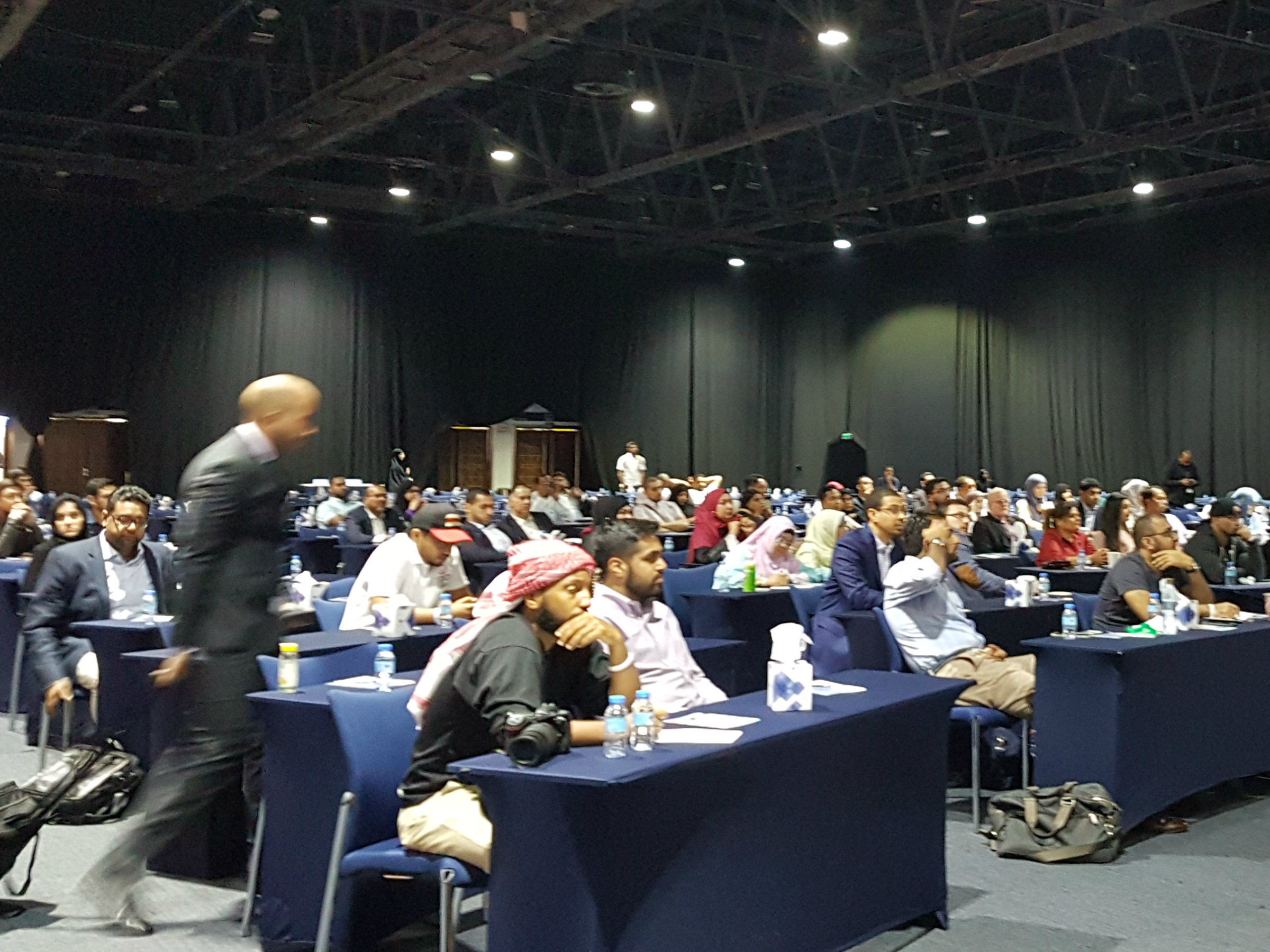Connect strategically with the right resources, Muslim entrepreneurs told
Photo: DUBAI, UAE - OCT 9, 2016: Participants at the MPowered Summit in Dubai
Maruf Yusupov of Denmark-based Halal.Ad was in Dubai sharing his success story alongside 28 other Muslim entrepreneurs at the MPowered Summit held at Dubai International Convention and Exhibition Centre, days before the Global Islamic Economy Summit 2016.
Yusupov says that his purpose for being here is “both fund-raising and business development.” He is looking for $1 million in expansion capital to “hire developers and a sales team, and to open a satellite office, perhaps in Malaysia.”
He’s clearly doing the right thing at the right place. Engaging the audience and getting them to buy into his dream, or business plan, while being direct about what you need, is where networking scores an edge over a sales pitch, successful entrepreneurs said at the summit. That interpersonal interactions are important is not a new concept; but for Muslim entrepreneurs, networking is directly connected to tangible results, they said.
EVOLVED
The concept of networking has evolved from the old-economy model of business executives exchanging business cards at an industry event and then going off to lunch to a strategy built into a business from the planning stages and executed granularly.
The strategy, experts said at the summit, includes identifying early evangelists, connecting with key knowledge leaders and, most importantly, engaging with them on a structured and continuous basis.
The summit was attended by purposeful people reaching out to each other, exchanging business cards, sharing stories, encouraging each other – “Mashallah” and “Hamdullah” were often heard on and off the stage. In between sessions, everyone met everyone else, stopping at tables to talk and tell.
For the Muslim entrepreneur, Networking 101 is a strategy, not just something aimed at building a marketing database and collecting ‘likes’ on social media.
Chris Blauvelt, CEO of crowdfunding platform LaunchGood, said crowdfunding is, in fact, storytelling, with fundraising a by-product.
“If you just need money, don’t do crowdfunding,” he said, urging entrepreneurs to use such platforms strategically to reach out and connect with their prospective target market. “In the process [of crowdfunding] you build the audience. It’s like being paid to spread the word about your product,” he said.
Connections are, in fact, part of Halal.Ad’s business model, which promises a “faster and cheaper way to reach millions of Muslim consumers online,” and aims to be “the Google ad network of the Muslim world,” creating solutions for Islamic businesses to reach the right target market online. Halal.Ad already has a reach of one million; the target is to hit five million globally.
B2B DIRECT APPROACH
Regardless of how digital the world has become – and this is particularly true of the very diverse Muslim market – business-to-business transactions benefit from a direct approach, said Shahed Amanullah, founder and CTO of Affinis Labs. Networking done online or offline acquires a more businesslike tone and meaning in the context of the Islamic Economy, he said.
“A lot of you who've been in this space for many years have felt alone,” Amanullah said. “Reaching Muslim consumers has been a challenge. How do you define a Muslim consumer? Muslims are as diverse as any population that you can possibly think of – different countries, different languages, different regions and religious practices.”
Another speaker, Com Mirza, a serial entrepreneur and founder of Com Mirza Holdings, a venture capital firm, said networking is fuel for inspiration. “Reach out, connect, build a relationship with entrepreneurs, pioneers, change-makers, influencers,” he urged the audience.
Mirza asked entrepreneurs to make a list of five to 10 key people they believed would be crucial to the success of their start-up, acquire their contact details (“This is hardly difficult in this age of LinkedIn and Twitter”) and then reach out to them. “Don’t just make contact and then step back; continue to engage. You need to know in advance what you need from each of these influencers, so go ahead and ask them key questions designed to achieve your knowledge goals or even operational goals,” he said.
Ahmed Abdulwahab, Managing Director at Dubai-based Turn8 Seed Accelerator, presented the most business-like approach to the concept. He urged entrepreneurs to include “customer relationships” as a key component of the start-up business plan, right alongside the value proposition and the mission and vision.
“Develop for a few, not for the many,” he said, placing great value on the ability of key evangelists of a new business helping the enterprise scale up and grow.
Copyright SalaamGateway.com 2016 All Rights Reserved

Shalini Seth, Media ME